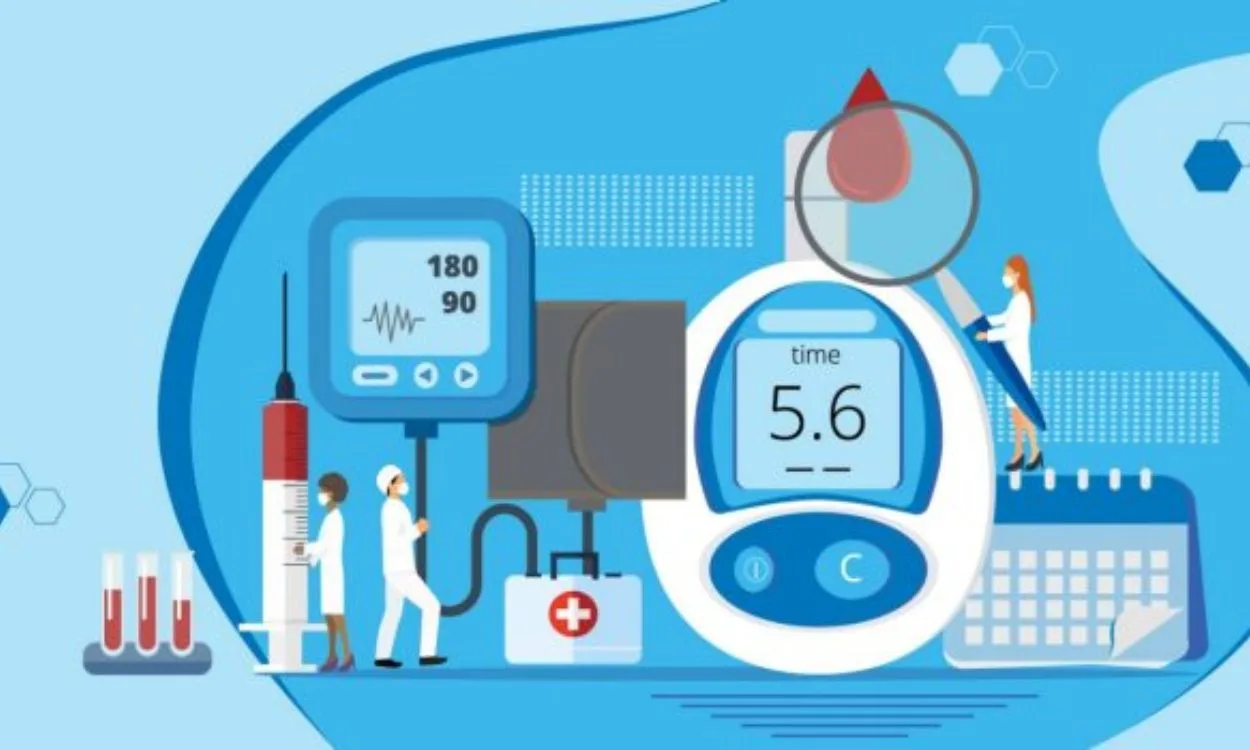The Impact of Carbohydrate Quality on Blood Sugar Levels
The type and quality of carbohydrates consumed have a significant impact on blood sugar levels, especially for individuals in the Indian population. Carbohydrates are the body’s primary source of energy, but not all carbohydrates are created equal. Understanding how different types of carbohydrates affect blood sugar levels is crucial for managing overall health and well-being.
Understanding Carbohydrates
Carbohydrates are macronutrients found in a wide variety of foods, including grains, fruits, vegetables, and dairy products. They are classified into two main categories: simple carbohydrates and complex carbohydrates.
Simple Carbohydrates
Simple carbohydrates, often referred to as “sugars,” consist of one or two sugar molecules. They are quickly digested and absorbed, leading to rapid spikes in blood sugar levels. Foods high in simple carbohydrates include:
- Refined sugar
- Honey
- Fruit juices
- Candy
- Soft drinks
Consuming excessive amounts of simple carbohydrates can lead to sharp increases in blood sugar levels, followed by a rapid decline, which can leave individuals feeling fatigued and hungry shortly after eating.
Complex Carbohydrates
Complex carbohydrates, also known as “starches,” are composed of long chains of sugar molecules. They take longer to break down and are absorbed more slowly, leading to a gradual and sustained release of glucose into the bloodstream. Foods rich in complex carbohydrates include:
- Whole grains (brown rice, quinoa, whole wheat)
- Legumes (beans, lentils, chickpeas)
- Vegetables
- Fruits (especially those high in fiber)
Consuming complex carbohydrates provides a more stable and prolonged source of energy, effectively regulating blood sugar levels and promoting feelings of satiety.
Impact on Blood Sugar Levels
The impact of carbohydrate quality on blood sugar levels is directly related to the glycemic index (GI) of foods. The glycemic index is a numerical ranking system that classifies carbohydrates based on their ability to raise blood glucose levels. Foods with a high GI value cause a rapid spike in blood sugar, while those with a low GI value produce a slower, more moderate increase.
High GI Foods
High GI foods, such as white bread, white rice, and sugary snacks, are rapidly digested and cause a sharp increase in blood sugar levels. This sudden surge in glucose can overwork the body’s insulin response, leading to insulin resistance over time and an increased risk of type 2 diabetes.
Low GI Foods
Low GI foods, including whole grains, legumes, and non-starchy vegetables, are digested and absorbed more slowly, resulting in a gradual and sustained release of glucose. These foods help prevent rapid fluctuations in blood sugar levels and support better overall blood sugar control.
Carbohydrate Quality and Indian Diets
In the context of the Indian population, where traditional diets are rich in grains, legumes, and vegetables, the impact of carbohydrate quality on blood sugar levels is of utmost importance. With the prevalence of conditions such as diabetes and metabolic syndrome, understanding the role of carbohydrates in managing blood sugar becomes a crucial aspect of overall health and well-being.
Consuming a balanced diet that prioritizes complex carbohydrates with a low GI, such as whole grains and fiber-rich foods, can help regulate blood sugar levels and reduce the risk of developing chronic conditions associated with poor blood sugar control.
Introducing Fitpaa – Your Personalized Health & Fitness Solution
While understanding the impact of carbohydrate quality on blood sugar levels is essential, implementing this knowledge into personalized health and fitness goals can be challenging. This is where Fitpaa, an end-to-end AI-driven metabolism monitoring and management technology, can be a valuable partner in achieving optimal health and well-being.
Fitpaa’s Approach
Fitpaa utilizes state-of-the-art research in lifestyle medicine and behavioral therapy to strengthen all 11 organ systems, delivering guaranteed results in achieving health and fitness goals. By providing personalized Fitpaa Capsules based on individual metabolism, health goals, lifestyle, and eating habits, Fitpaa offers a comprehensive solution for optimizing metabolism and achieving sustainable health outcomes.
Impact on Blood Sugar Control
For individuals seeking to manage blood sugar levels and overall well-being, Fitpaa offers a holistic approach that integrates medical nutrition therapy, exercise therapy, nutrition therapy, and cognitive behavior therapy. By leveraging real-time guidance and metabolism management technology, Fitpaa ensures that users receive the necessary support and motivation to make sustainable lifestyle changes and achieve their health objectives.
Commitment to Guaranteed Results
Fitpaa’s commitment to guaranteed results, evidenced by the lifetime validity of its goal-oriented services, reflects its dedication to empowering individuals to achieve their health and fitness goals with confidence and assurance.
In conclusion, understanding the impact of carbohydrate quality on blood sugar levels is the first step toward making informed dietary choices for long-term health and well-being. By integrating this knowledge with personalized health and fitness solutions like Fitpaa, individuals in the Indian population can embark on a transformative journey towards optimal health, supported by innovative technologies and dedicated professional guidance.
To experience the transformative potential of Fitpaa and take proactive steps towards achieving your health and fitness goals, download the Fitpaa app today and embark on a journey towards a healthier, more vibrant life.









